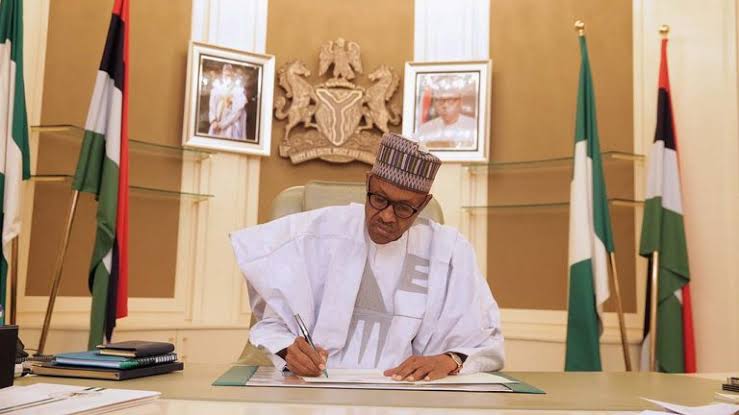President Muhammadu Buhari has granted Presidential pardon to the Late Chief Anthony Enahoro and Late Professor Ambrose Ali, in the exercise of his prerogative of mercy.
Others also pardoned are; Ex Lt. Col. Moses Effiong, Major E.J. Olanrewaju and Ajayi Olusola Babalola. Prof Ali was the governor of the old Bendel State in the Second Republic (1978-1983) and a great progressive while Chief Enahoro was a foremost nationalist who moved the motion for Nigeria’s independence.
A total of 70 inmates who received Presidential clemency at the Federal level also breathe the air of freedom on Thursday as they were released from prison to be united with their families.
Minister of Interior, Ogbeni Rauf Aregbesola, made this known, on Thursday, in Abuja at a news conference at Headquarters of Nigerian Correctional Service to flag off the release of the inmates granted Presidential amnesty.
He also disclosed that the 36 states governments would also work on the release of 2,530 inmates that have been profiled by the Nigerian Correctional Service in line with the efforts to decongest the Custodial Centres across the nation.
Attorney-General of the Federation and Minister of Justice, Abubakar Malami and Minister of Information and Culture, Lai Mohammed were in attendance at the World press conference to announce the release of the beneficiary inmates from the Correctional Centres nationwide.
Aregbesola commended President Buhari for demonstrating great statesmanship by pardoning these people who were part of the great Nigerian history, saying what the President has done was to posthumously erase any record of offence or conviction against Enahoro and Ali.
The warrant of the release of the 70 convicted inmates was signed at a brief ceremony at the Kuje Custodial Centre, where the excited inmates thanked the Federal Government profoundly for granting them freedom after years of in dungeon.
The inmates were granted amnesty by President Muhammadu Buhari as part of measures to decongest the Correctional Centres across the country in order to curtail the spread of coronavirus pandemic.
Aregbesola in his remark explained that while 41 inmates have been granted clemency by President Buhari, 29 other inmates were released by the Federal Capital Territory (FCT) Administration in line with the Presidential amnesty.
He said: “In arriving at amnesty, various issues were looked into and several options were considered. But the most pertinent and accordingly adopted are:
“Old age. This is for inmates that are 60 years old and above and those suffering from ill-health that are likely to terminate in death.
“Convicts serving three years and above and have less than six months to serve; inmates with mental health issues and;
“Inmates with options of fines not exceeding N50,000 and have no pending case.
“Using these criteria, a total number of 2,600 inmates spread across our various custodial centres qualify to benefit from the amnesty.
“These include 885 convicts who could not pay their fines totalling N21.4 million which the government will pay on their behalf to enable them get their freedom,” he said.
The Minister who lamented the problem of congestion of Custodial Centres noted that over 51,000 of inmates across the Correctional Centres in Nigeria were awaiting trial.
He said: “We still have challenges with accommodation. Our about 250 facilities are inadequate to house the over 74,000 inmates in our custody presently.
“You will recollect that last month we turned the sod for the construction of a 3,000-capacity custodial centre in Abuja. Before then, work had started in 2017 on a 3,000-Capacity Maximum Security Custodial Centre sited at Janguza in Kano State and is awaiting completion.
“We are therefore doing everything possible to overcome the accommodation challenge.
“However, a bigger issue that will positively affect accommodation at the correctional centres is the review of criminal justice administration with regards to the inmates.
“For instance, our last audit shows that a disproportionate number of inmates are awaiting trial persons (ATPs). In addition, we observed that: ” Some of the ATPs have spent 10 years or more in custody.
b. Some have no confirmed criminal case against them.
“Some have had their cases determined but could not pay the fines imposed on them by the courts and some are already old and weak; while some are very sick and infirm.
“Following these observations, the Ministry had set in motion the machinery for the decongestion of our correctional facilities, but this has now become imperative by the outbreak and continued spread of COVID-19,” he said.
Attorney-General of the Federation and Minister of Justice, Malami in his remark said the United Nations (UN) in the wake of the coronavirus pandemic advised nations to reduce inmates in incarceration to prevent the spread of the pandemic behind the bars.
